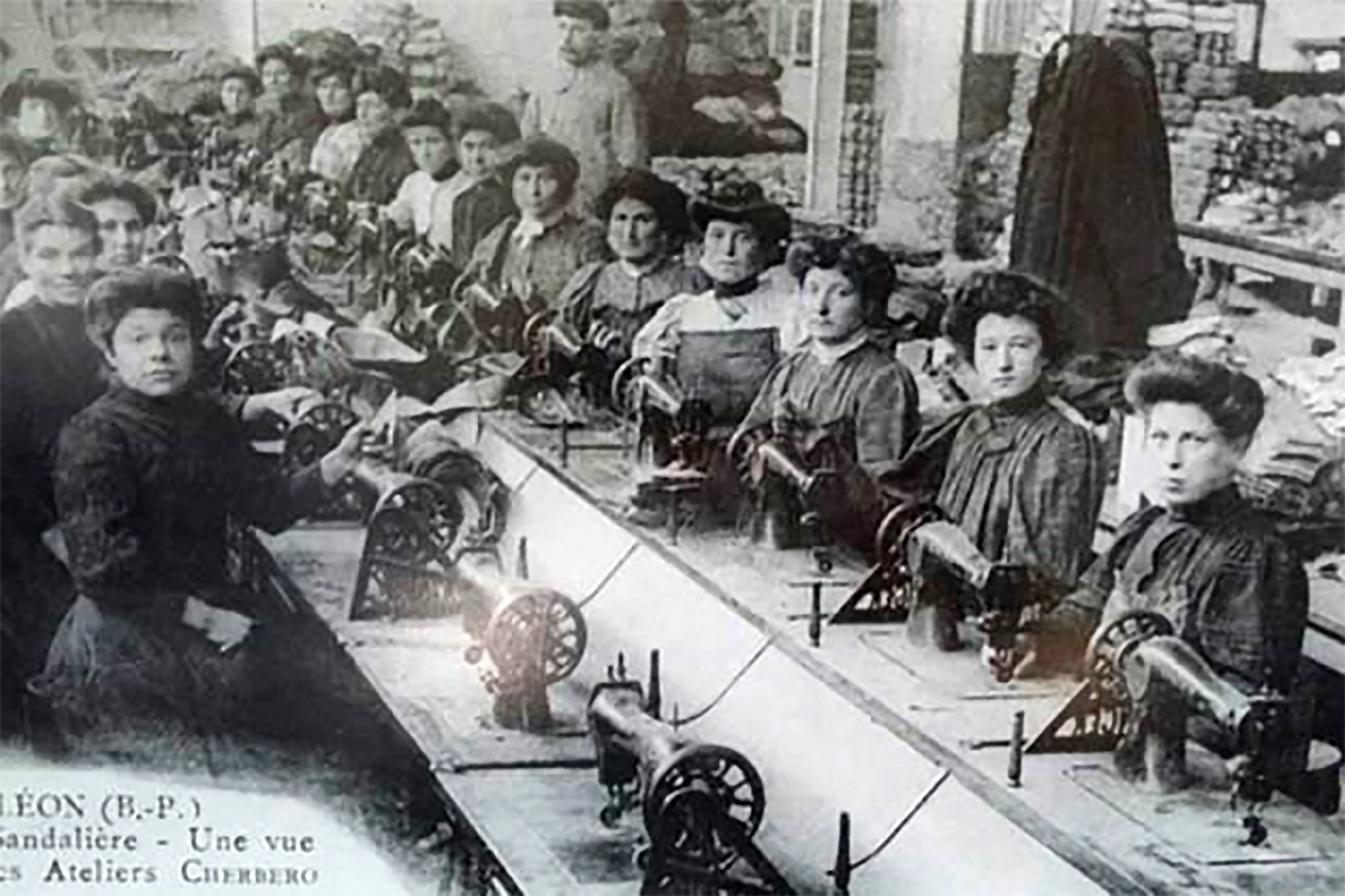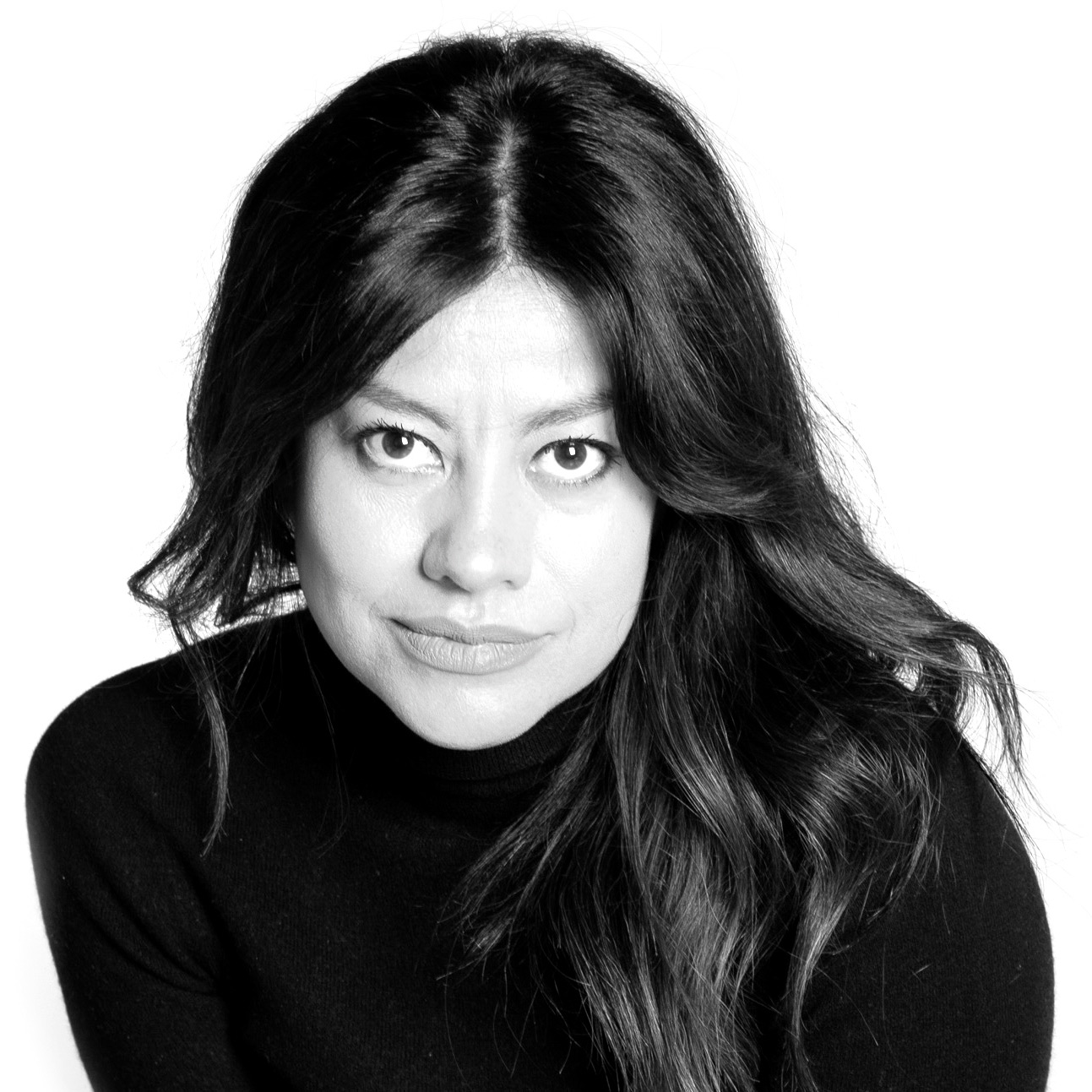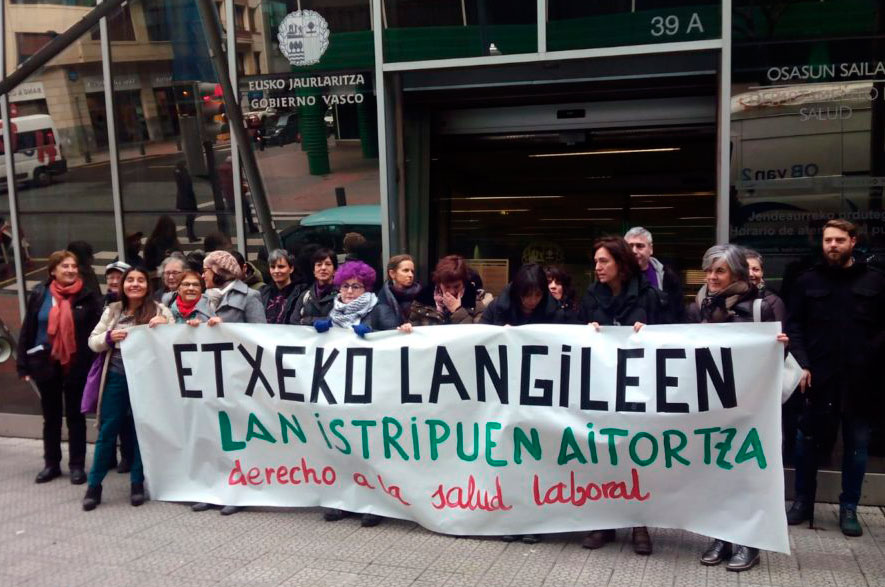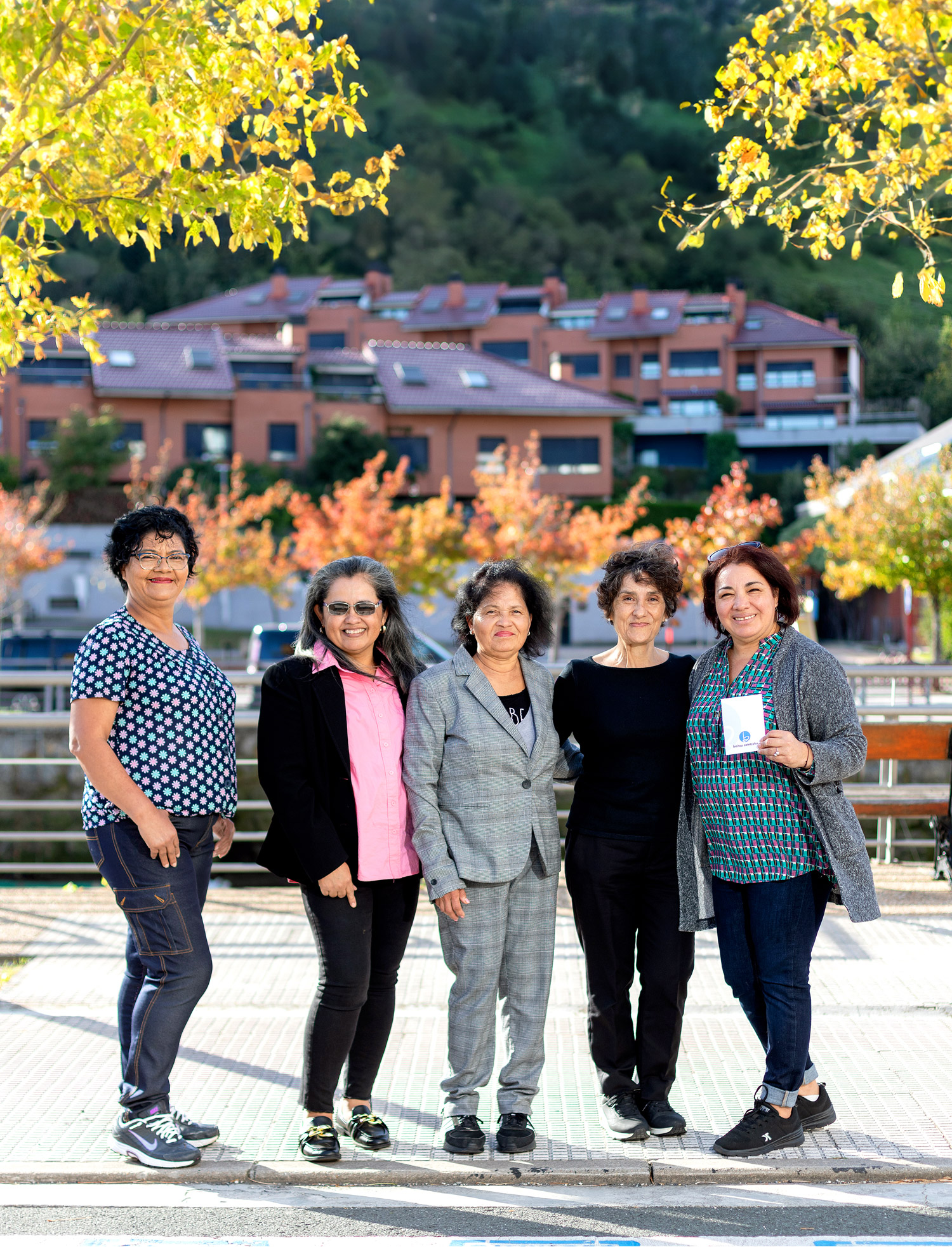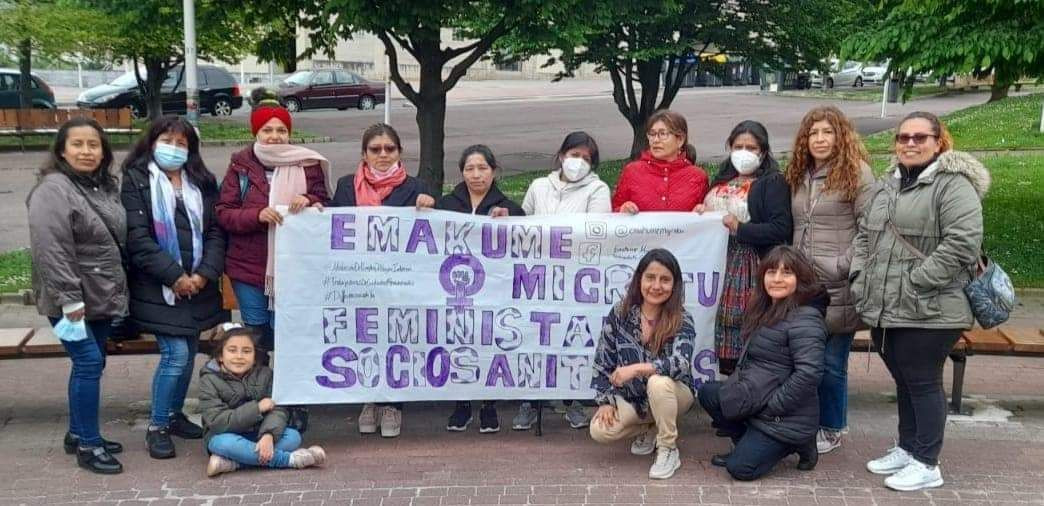"The socioeconomic reality of a person conditions his or her ability to take root in another country"
- After a weekend in Barcelona, this interviewer takes the opportunity to meet Güneş Öztürk. We have been quoted in the space Can Batlló, the former great textile factory of the 19th century, where the cooperative Col·lectiveT is located, along with other projects of transformative social economy. But you're a little bit, because today's protagonist has seen and heard many other things before coming here.

Lan Ekonomia eta Harreman Industrialeko ikasketak egin zituen Gaziko unibertsitatean (Ankara, Turkia) eta Migrazioak eta Bitartekaritza Soziala masterra Lleidako unibertsitatean (Herrialde Katalanak). CIEMEN zentroan ere lan egin du, besteak beste, erlijio yaziditako errefuxiatuen egoera eta Turkiaren mendeko lurralde kurduetako prozesu politikoak aztertuz. Gaur egun, Col·lectivaT kooperatibako kidea da. Kataluniako prozesu independentistari buruz ere idatzi du, hala nola Terra de ningú (Inoren lurra; Pol·len, 2017) liburuan; berriki, Una aproximació a la qüestió de les identitats en perspectiva nacional i de classe (Identitateen auziari gerturapen bat, nazio eta klase ikuspegitik) artikulua argitaratu du Mariona Lladonosarekin batera.
You were born in Turkey. When and how did it reach Catalonia?
I arrived in Tarrega (Lleida) on 14 October 2007 with a European volunteering programme. I came to work in the Alba association, a large and quite important organization in the territory of Lleida, where they work with people with functional diversity. They gave me incredible support. The truth is, I have to acknowledge that I deceived you in some way [laughs]. I told them I knew how to speak English and it wasn’t true… I only knew Turkish.
How was that?
My dear tutor, Violant Amorós, who unfortunately accompanied us last year, called the candidates by telephone. I was in Turkey, in Ankara, and I was determined to leave there. When I saw the call, I gave the phone to a friend, ten years older than me and a university professor, I locked myself in the bathroom and asked him to please speak as if it was me. I needed to be famous and I wouldn't get it if Albacoa realized I didn't know English. My friend got me through and they accepted me.
What happened when you arrived in Tarrega?
The day I met Violant, a speech that was already prepared, in English, explaining my situation. And he told me that we would fix ourselves.
Let me tell you one thing. It is very useful not to know English to learn Catalan and Spanish faster! This interview should be done with my friends in Tarrega, they would tell you how I was walking down the street with three dictionaries, and when I got tired of people, I would put my head on the table and I would fall asleep. It's really tired to be in a language you don't know all the time.
After volunteering, she started a master's degree in migration at the University of Lleida.
Yes, but I did it to extend the residence permit. How can you stay in a European country if you have a non-Community passport? There are few options. One: getting married; two: enrolling in a university program, which you believe will give you the right to residence, even if not quite so. Otherwise, you have to get a work contract or the fourth option is to get political asylum.
In my case, it wasn't a political asylum, I had to meet other conditions to get a work contract, and I could get married, but at that time I didn't study that possibility (I studied it in two months, don't believe it).
Master.
Yes. Furthermore, I have a very clear survival policy and I like it to be so. I was in Tarrega, a person of Turkish origin, didn't know Catalan or Spanish. I spent eleven months in a village of 16,000 people. I started studying the two languages, but I still didn't master them. How could I know where I lived? How could I know the country?
I thought that if I studied, I would learn the language much better, I would know the country from another place, and finally, although I was very comfortable in Tatarrega and in the Alba Association, I was not a social educator, and I had no vocation to spend more than two or three years in that work, so I had to start building my future based on my wishes.
"I'm going to tell you one thing. It is very useful not to know English to learn Catalan and Spanish faster!"
.jpg)
You say that at that time you had little Catalan and Spanish. How did you adapt to the classes? In
class, I was the only international student who, without knowing the language, enrolled in the program. The first or second professor we had in the master's degree asked what language he was going to teach the classes, and I answered that he understood Spanish and Catalan as similar, that is, the two bad [laughter], therefore, that it would be better to do it in Catalan, because thus, at least, the colleagues would work in their mother tongue. I believe that since then I have been aware of minority languages.
However, he continued along the academic path and began his PhD.
My thesis director, Jordi Garreta, proposed to do the PhD when I finished the first course of the master's degree. I was surprised, because then I was starting to understand 65 percent of schools. But he encouraged me and proposed to ask for a scholarship. I didn't know what the scholarship meant. I worked at the Alba association, and when he explained to me that for four years I was going to receive a net salary of a thousand euros, to study I said yes.
At that time, the most important thing to apply for the scholarship was the university and the professor, not the student's curriculum. In return, he had to have worked for the university or the research team. I got the scholarship, and so I entered the academic world. And I'm not going to leave that world until I'm offered to be president of the country.
It continues on the path of the thesis. What is the issue?
Do you really want to get in there? There is a prize to explain your thesis in three minutes, neither would I be able to explain it in half an hour! But let me give you a brief summary: my current thesis, which I want to finish soon, is a criticism of theories about the integration of people of migratory origin into the host society, from non-orthodox Marxism.
Has the issue changed a lot since it started?
The truth is that the seed has never changed. It has changed where I criticize. I knew I wanted to criticize these theories, but I found myself in non-Orthodox Marxism from 2012 onwards.
Another timeline, the epistemological timeline of my life, is the theoretical framework in which I stand. That framework is renewed once, but one thing has never changed: feminism. I've had this since I was 7. Marxism comes later.
On the one hand, there is an
abstract or epistemological level, a critique of concepts or the conceptualization of certain things. In this sense, my thesis is quite theoretical, because it fundamentally criticizes the conceptualization of culture and cultural difference.
As for the practical level, I do not offer you time in the thesis, but I will give you an example. They always tell me that I am very well in Catalan, that I know everything that happens... People, when they tell me that kind of praise, forget one thing clear: who I am and where I come from. I do not come from a upper-middle-class family, but the person's migratory process, his process of taking root in the country and his economic reality clearly condition the ability to learn the language and to integrate into the culture of a country, the ability to create networks, the ability to enjoy others. People believe that all of this is my merit, which is related to my nature. No. It is intimately linked to my socio-economic reality.
.jpg)
"They've been here for 20 years and they don't know Catalan." When I hear these phrases, I always ask the same question. How many intimate people do you have of foreign origin?"
You defend the right to decide in Catalonia. How does everything we have mentioned so far affect your vision? There
are very important issues that have to address not only the most important political figures of this struggle and resistance, but also the Catalan people as a whole: on the one hand there is the feminist issue, or fundamentally the feminist policy, that is, how we face this political project as a Catalan woman, whether it represents us or not the political discourse, if it gives us space, if it does not give us, we will take it.
And on the other hand, what situation they have and where and how people of migratory origin, anti-racial movements and resistance movements across the country will join this political projection. For example, in this new Catalan republic, what are we going to respond to institutional racism? I reflect from there and from there I can act.
Could you give a concrete example?
For example, the organization of Catalan schools. Level A classes are also taught in the morning, afternoon and evening hours. But at levels B and C, what time do we have?
Only in the morning.
Yes. And who can go? What people can come and under what conditions? I have learned very well Catalan, yes, but I have had time to do so. "They've been here for 20 years and they don't know Catalan." You may not know why you have not spoken in Catalan with whom.
When I hear phrases like this, I always ask the same question. How many close friends do you have of foreign origin? That is a very good question. And I don't mean cosmopolitan people, my colleagues like Alp [Öktem] next door, who came to PhD at Pompeu Fabra University with a scholarship. That's not worth it. We are not the majority reality of Catalan migrants.
He mentioned his colleague, and it is time to talk about the cooperative Col·lectiva T. What is it and when did you create it? In
2015, we started working on the idea of a cooperative and formally completed it in 2017. We are five founding partners. Four of us are of Turkish origin and the other member is of Italian origin. We work, for them and with them, with minority languages and peoples in three areas: linguistic technology, research in social sciences and languages/translation, always from a feminist and anti-racist perspective.
In the field of research in social sciences, for example, we investigate the framework of migration or minority territories, such as the Kurdish territory, but we also analyze the situation of some groups in minority countries and nations.
And in the field of language technology?
We create technological resources for minority languages and languages of stateless nations. One is Catalan. We are currently working with a Judaeo-Spanish language, the ladin, through a European project, and this year we have also started working with the Amazon.
We do things like voice synthesis, machine translation, digitisation, conservation and access to linguistic and cultural resources, creating digital material for language learning.
We lack a third field: languages and translation.
For example, El sol del Nord. Construint l’autonomia a a Bakur (Sol del Norte. We subtitled the film Building Autonomy in Bakur. It is a project of dear members [Ivardia Produccions], on the situation of North Kurdistan, dependent on Turkey.
Being of Turkish origin, what does it mean for you to participate in something like this?Most of the partners of this cooperative are
born in Turkey and we are not members of a minority, that is, we are all born in Turkish-speaking families. I do not know what our ethnic origin will be, but for me there is one clear thing: In Turkey, you are cured or not – or, to some extent, you belong to a religious minority or not – from there you can say whatever you want about your ethnicity, but it is Turkish, that is, your identity building has not been oppressed like that of those other groups. Therefore, participating in such a project is a political commitment for us, which adds to our other axes.
Does that mean anything else?
Well, we've talked about the cooperative's three axes of work, but in addition to all of this, we also have to do a reproductive, surveillance, etc., to maintain the structure, obviously.
Maule, 1892. Eight women from the Salazar Valley headed home from the capital of Zuberoa, but on the way, in Larrain, they were shocked by the snow and all were killed by the cold. Of the eight, seven names have come: Felicia Juanko, Felipce Landa, Dolores Arbe, Justa Larrea,... [+]
International Migrants Day is celebrated on 18 December. Last year, an institutional event was held at the Alhóndiga in Bilbao in cooperation with the social partners and I was invited to participate. There I had an unbeatable opportunity to meet new creators and, above all, to... [+]











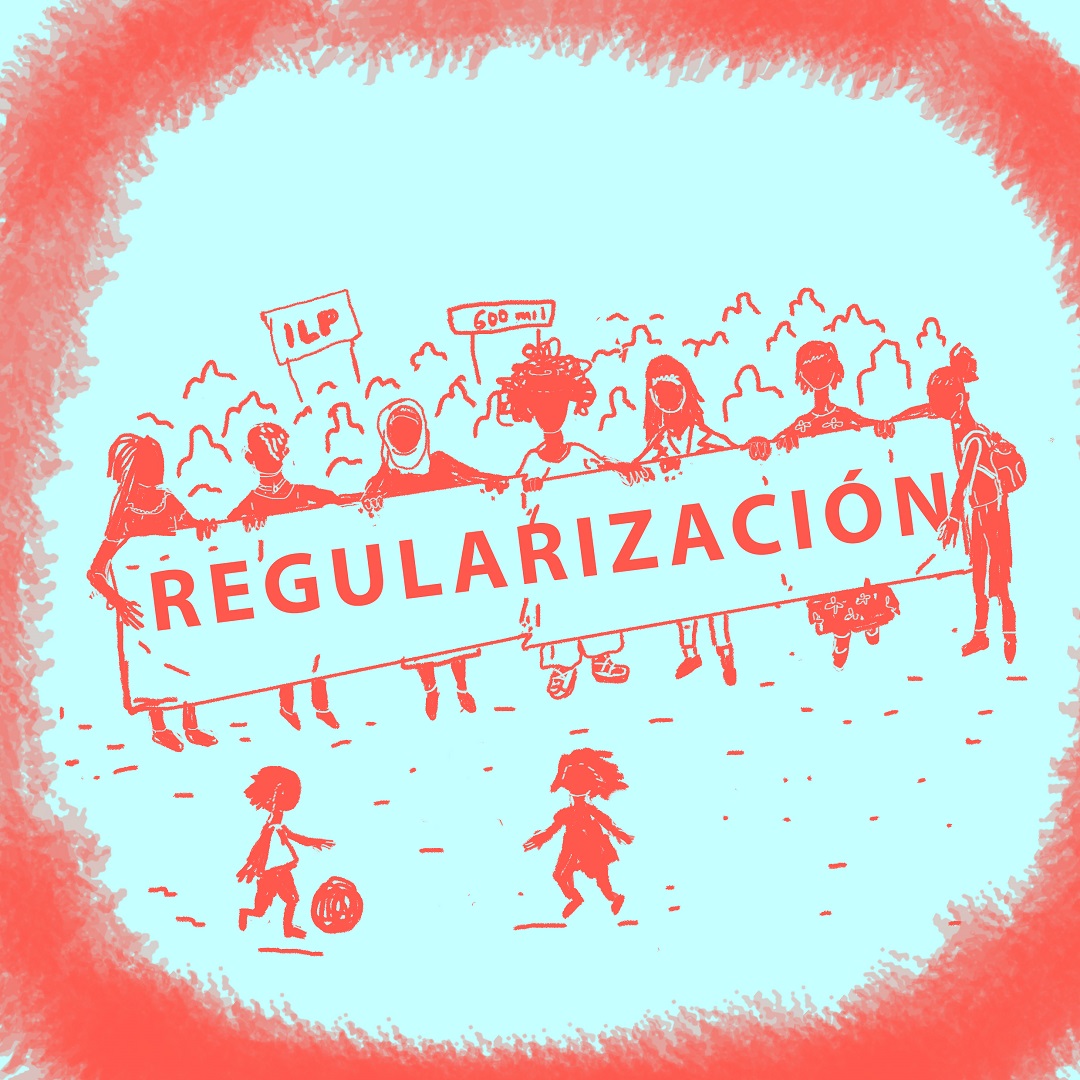
.jpg)
